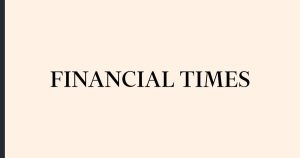With inflation cooling and wages growing, why are Canadians still feeling strained? – National

The federal finance minister has been taking every opportunity to remind frustrated Canadians that after a bumpy pandemic recovery, the nation’s economy is actually doing a lot better.
Inflation is now at 1.6 per cent, below the Bank of Canada’s two per cent target. Interest rates are falling rapidly and more cuts are on the way. The economy, while weak, has avoided a much-feared recession.
And maybe most importantly, wage growth has outpaced price growth for 20 consecutive months.
But a recent RBC analysis suggests that Canada’s economic recovery has been uneven, with “two contradictory trends.” Beneath the surface of the more encouraging economic statistics are some less flattering ones.
The top 40 per cent of income earners have taken home 70 per cent of wage growth over the last three years.
Household spending on a per-person basis is down.
And while low- and middle-income Canadians have devoted more of their pay to essentials and like food and shelter, the highest-income earners continue to amass significant savings.
“It’s very much a story of households in different income quintiles or different earnings brackets, if you will, are feeling the current economic environment very differently,” said RBC economist Carrie Freestone, who authored the report.

The Bank of Canada’s interest rate hikes have contributed to that divergence. Steeper rates have increased the debt load of low- and middle-income households with mortgages or other loans. Meanwhile, people with higher incomes have been earning higher returns on their savings.

Get weekly money news
Get expert insights, Q&A on markets, housing, inflation, and personal finance information delivered to you every Saturday.
“The Bank of Canada is in a really tricky position,” Freestone said. “They obviously want to target the prosperity of all Canadians, but it’s very difficult to do that with monetary policy, because (they have) one tool.”
Economists widely acknowledge that low-income earners are the ones who suffer the most when the cost of living rises. But Freestone’s analysis shows middle-income earners have felt the bite as well.
In 2023, workers in the 40th to 60th percentile of the income distribution allocated the greatest share of their take-home pay to essentials since 1999.
Christopher Ragan, an associate professor of economics at McGill University, says it’s not surprising that Conservative Leader Pierre Poilievre’s more pessimistic message about the economy has resonated with Canadians over the optimism the Liberals have been trying to project.
“People are still thinking about the pain that they felt unexpectedly two years ago, and some of that pain is still there on interest rates,” Ragan said.
“So the government focuses on the reduction in inflation, but they don’t talk about prices still being high. They focus on the reduction in interest rates, but they don’t talk about the people that were hurt by the interest rate increase.”

Stephen Gordon, an economics professor at Laval University, says people tend to have negative impressions of economic conditions even when things are going well.
From his perspective, the Canadian economy “dodged a bullet” by coming out of a period of high inflation without experiencing a major economic downturn from interest rate hikes. He noted people’s earnings have risen, including median earnings.
“I don’t see any reason to panic,” he said, adding that problems like lagging productivity and economic inequality have always been challenges in Canada.
“It’s kind of hard to put things in perspective. Sometimes it’s hard to persuade people, you know, this is as good as it gets. There really never was a golden age.”
Finance Minister Chrystia Freeland began holding weekly news conferences last fall to highlight the government’s economic agenda in response to widespread concerns about affordability.
The Liberals are hoping that as the economic picture brightens, Canadians will be more receptive to their economic message.
In recent months, Freeland has used these news conferences to emphasize good economic news.
“The Bank of Canada was the first central bank in the G7 to cut interest rates for the first time, the first one to cut interest rates for a second time, the first one to cut interest rates for a third time and the first one to cut interest rates for a fourth time,” she said on Oct. 29.

“I emphasize this because this is really important relief for Canadians and Canadian businesses. It means more money for your household, more money in your pocket.”
But so far, Canadians don’t seem to feel any better about the state of the country or the federal government, said David Coletto, the CEO of Abacus Data.
On questions about food and fuel prices, or housing and rental prices, “there doesn’t appear yet to be any shift in those perceptions,” he said.
The Liberals have also had no success in closing the double-digit lead the Conservatives have built in public opinion polls, despite bringing forward a spring budget heavily focused on housing.
Coletto said there’s a small chance that the improving economic conditions could help the Liberals, but he said the government faces significant hurdles given the prime minister’s abysmal popularity numbers.
“Time is running out, obviously,” Coletto said.
© 2024 The Canadian Press
#inflation #cooling #wages #growing #Canadians #feeling #strained #National









